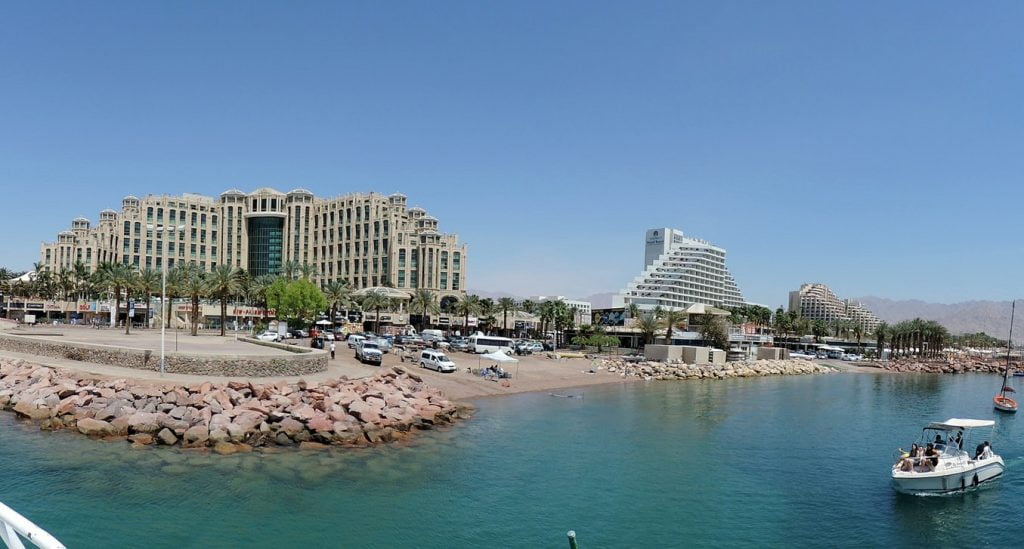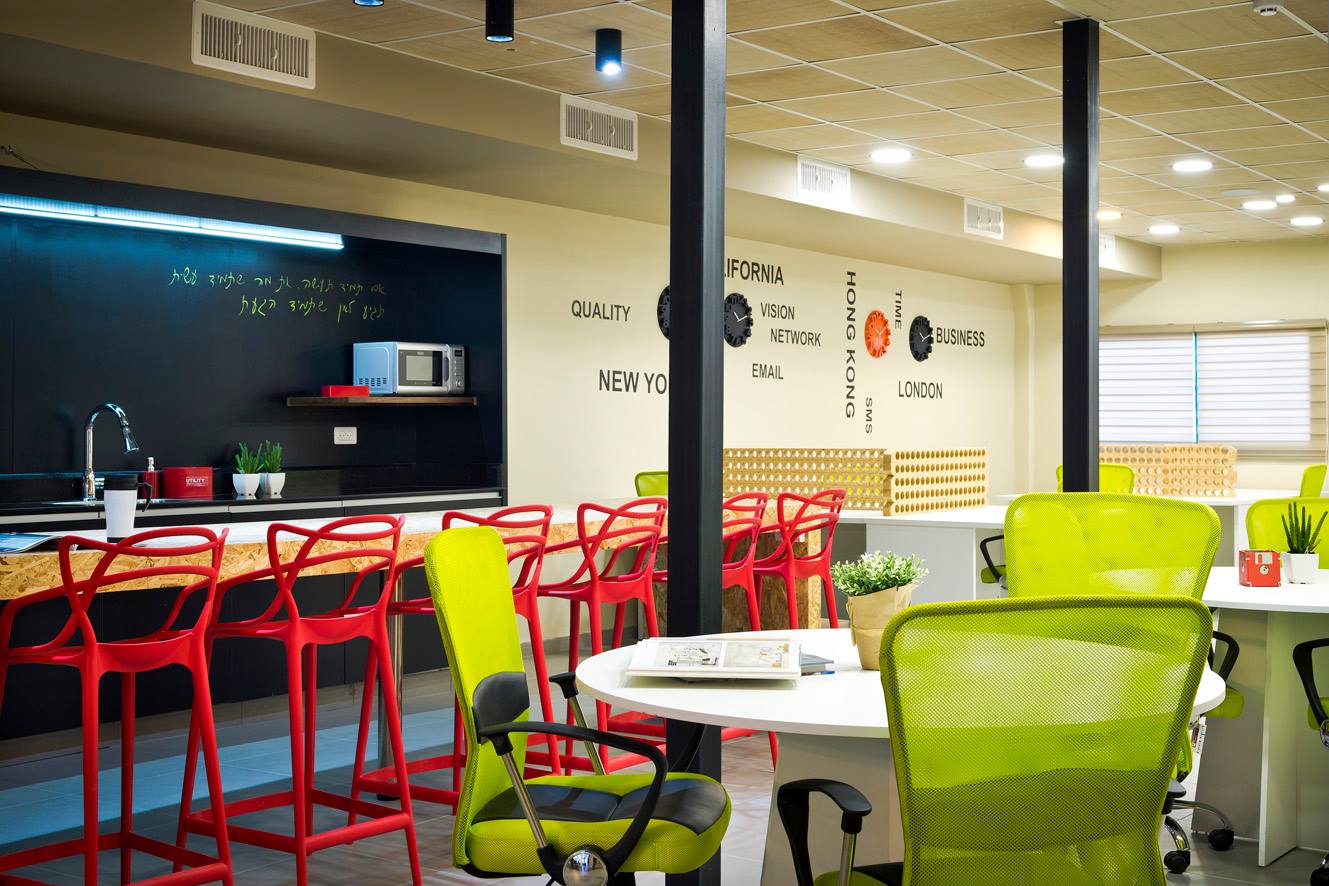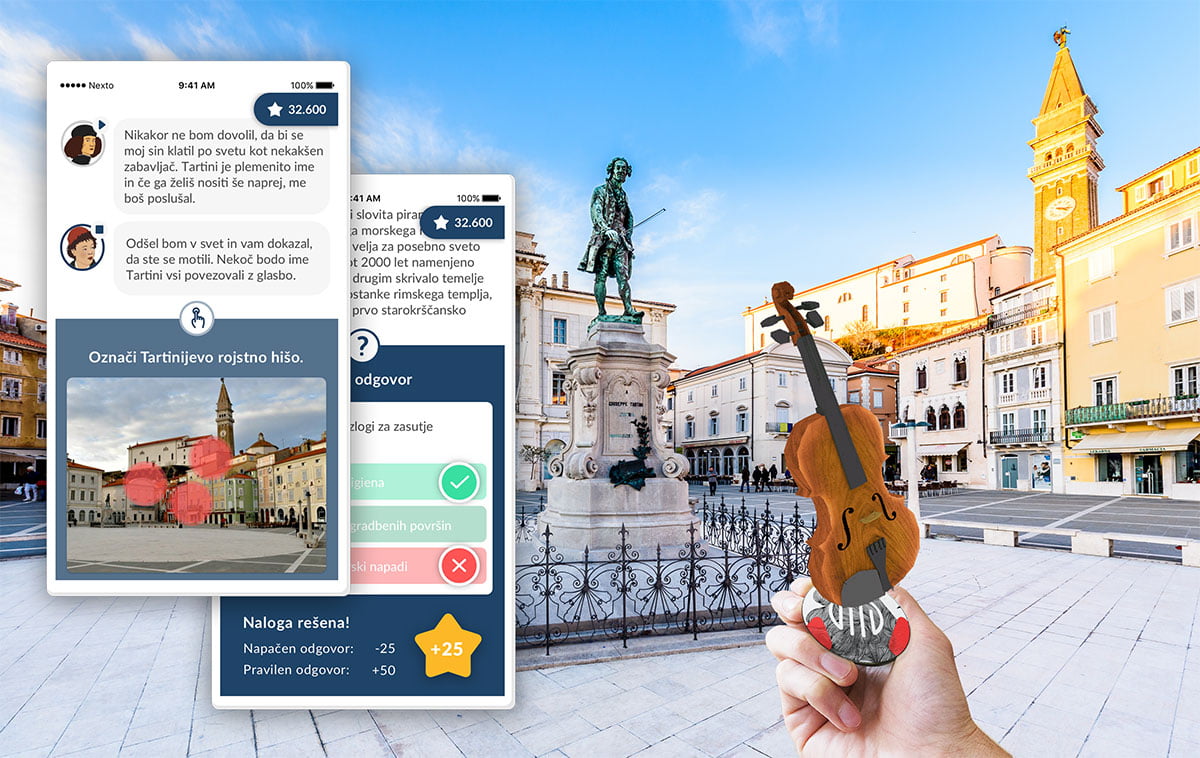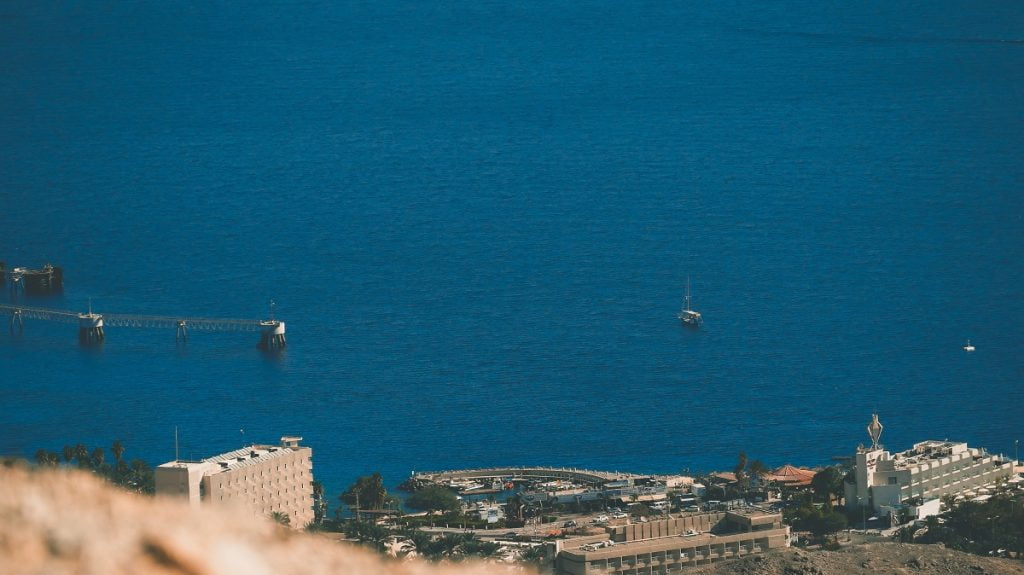When Israel took on the start-up nation moniker, cities like Tel Aviv, Haifa, and Herzliya immediately came to mind as vibrant high-tech scenes. Today, even historical and spiritual Jerusalem is earning a spot on the start-up map as home to vision-based driver assistance system Mobileye, acquired by Intel, and DIY lifestyle firm Hometalk. Global venture firms such as OurCrowd and Jerusalem Venture Partners also see a bright future for the city, setting up new funds and incubators.
But what of Eilat, the southern port and resort town on the Red Sea known more as an escape for most Israelis due to its lavish beaches, tourist attractions and high concentration of hotels? Could it make its own mark on the industry?
SEE ALSO: A Look Inside Israel’s Booming Travel Tech Industry
The entrepreneurs behind the Eilat Hub, the co-working location, incubator, accelerator, and high-tech platform all tucked into one unassuming space in an industrial area just 10 minutes from the airport, seem to think so. They are seeking to turn the hub into a center of innovation and creation in southern Israel. And their current focus is on travel tech.
“Just two-and-a-half years ago, there were zero startups in Eilat,” Eilat Hub CEO Or Haviv tells NoCamels during a conference earlier this month. Today, he says the Eilat Hub has 30 in its portfolio and runs over 114 programs for startups of all levels with tens of thousands of meetups throughout the year.
“We are one of the fastest growing hubs in the world,” he says, “Everyday we have one to five startups knocking on our door.”
Eilat: Travel tech city
Israel may be known for its tech prowess in cybersecurity, agriculture, autonomous driving, and digital health, but it’s also making strides in travel technology.
Israel is currently home to more than 300 travel tech startups, making an impact in all travel sectors including hospitality, hotel management, and tourism. Booking.com, the search engine for travel and lodging reservations, announced it would open an R&D center in Tel Aviv last year, and then revealed plans to move to the Azrieli Sarona tower in April 2018 in order to expand operations.
Israel’s national airline, El Al, also saw an opportunity, forming a strategic partnership in February with the world’s largest aerospace company Boeing, through its investment arm Cockpit Innovation, to scour travel technologies for possible applications in the aviation and aerospace industries.
While travel tech startups are spread all over the country, the Eilat Hub says the city is essentially a “travel tech capital,” and an ideal environment for startups to test their products and technologies.
Eilat is Israel’s top travel destination, Haviv says. It is in close proximity to the upcoming Ramon International Airport, currently in its final stages of construction and set to open in 2019 about 10 km north of the city. It is set to handle domestic and international low-cost and charter flights from Europe. Eilat also has an international sea port, which hosts cruise ships, and has the largest number of hotel rooms within one city in the entire country. According to a Ministry of Tourism report in 2017, a record-breaking year for incoming tourism in the country, there were 50 hotels with 11,023 rooms operating in Eilat which is more rooms than Jerusalem (10,381 rooms), Tel Aviv-Jaffa (7,937 rooms.), the Dead Sea area (4,532 rooms), and the Sea of Galilee area (6,545 rooms).
“These numbers…[along with] a comprehensive tourist infrastructure on the private, municipal, and government level, and more, along with our fastest growing ecosystem, make Eilat a travel tech city,” Haviv says.
Boots on the ground
Haviv says the Eilat Hub, and its annual Travel Tech Boot Camp is the “perfect answer to Eilat’s travel and tourism infrastructure.”
Partnering with InnoVel, the business and innovation center connecting travel companies with cutting-edge startups, Eilat Hub held its five-day boot camp at the same time as the 3rd annual InnoVel Travel Tech conference which began on June 12 in Tel Aviv. The conference featured representatives from some of the world’s biggest tourism companies including Airbnb, Skyscanner, Expedia, HostelWorld.
Travel startups from seven countries applied to the Boot Camp, Haviv says, and five companies already in advanced stages made the final cut. The scale-up program was packed with business sessions and workshops led by 50 top tech, travel, financial, investment, hospitality and legal representatives from leading investment firms, hotel chains and tourist networks including Agoda, Skyscanner, Accor hotels, Booking.com, Arkia Airlines, InnoVel, Champion Capital, and Cockpit.
The five travel tech startups who participated in the boot camp pitched their startups on the program’s demo day on June 14. Judges included Rom Hendler and Chen Amishay, CEO and COO of InnoVel, Andy Morris, senior commercial manager of Skyscanner, Raphael Guillet, disruption technologist at AccorHotels, Timothy Hughes, vice president of corporate development at Agoda, Avishai Cohen, COO at Amadeus IT Group Israel, Eitan Spector, partner development manager ISV and startups at Microsoft Israel, Oz Eliav, director of corporate innovation at El Al’s Cockpit Innovation and Stephen Bookbinder, the managing director of Champion Capital Group, who was not able to make it to Eilat but made himself available remotely via Skype throughout the entire boot camp.
Products and services from the five startups ranged from hotel performance analytics to a new virtual assistant for travelers (think Siri on the streets.) Israel-based SeeVoov’s CEO Asaf Toker pitched a new way to plan trips based on videos that are tagged by the company’s intelligent machine learning system. Israeli-founded company Viggo hopes to deliver a hotel engagement platform through Smart TVs, wi-fi, and an app, according to General Manager Jonathan Casif. HotelsBI, with employees in Israel, Russia, Germany, and Belarus, provides aggregated analytics to hotels and ways to improve hotel performance. Israeli EasyWay founder and CEO Roy Friedman said he came up with the idea of Eve, a virtual assistant that can provide tailor-made recommendations for the ultimate travel experience, while traveling the world and coming up short when planning his own itinerary.
Sign up for our free weekly newsletter
SubscribeThe winning startup was Slovenian firm Nexto, a location-based engagement and storytelling platform that enables content creators to use augmented reality to enhance guided tours at popular tourist and heritage destinations. In other words, the team turns “audio guides into games to make sightseeing more interactive,.”
“Modern generations have higher expectations, both in terms of content quality and engagement,” Nexto co-founder and chief product officer Tadej Strok said during his pitch, “Our devices are now enabling much better location-based engagement possibilities and especially with what’s been happening with AR in the recent months, years. Our phones are becoming windows into different worlds. We believe we’re standing on the brink of a storytelling revolution.”
Nexto won a package of services worth more than NIS 100,000 ($27,600), which is provided by Google Launch Pad, Microsoft, law firm APM & Co., and VC firm Champion Capital Group. It was the company’s second win at a startup competition, nabbing first prize at the Booking.com Booster Lab in Barcelona.
Haviv explains that the Eilat Hub Boot Camp is the first step to a long-term tourism and technology development program called the Incubator, a one-year program for companies at a relatively advanced stage, that has a steady workflow, a finished product, has already raised capital, and is mostly ready to enter the market. The Incubator aims to connect large and diverse entities in the market, including investment funds, tech hubs, and international companies (think, El Al’s Cockpit venture arm or representatives from Microsoft) with tech startups. All the startups that participated in the Boot Camp can become part of the Incubator program.
“Eilat Hub supplies participating companies with a professional team that helps them break into the market and creates fertile ground for the startup as a well as an opportunity to position Eilat as the leading city in the field of travel tech at national and international levels,” the hub said in a statement.
Why should a startup come to Eilat?
When asked why the high-tech scene didn’t boom in Eilat as quickly as it did in other parts of Israel, Haviv is quick to answer.
“I think there is a reason that the people of Israel walked 40 years in the desert. I don’t think it’s because they didn’t have Waze. I think we weren’t ready for it,” he tells NoCamels, “You have to be ready in many ways. Infrastructure has to be ready. The people of Eilat have to be ready. The fact of the matter is if we were ready, it would have happened. The right things have to be aligned.”
Haviv says the excuses of the past — Eilat is too hot, Eilat is too far, Eilat has nothing for entrepreneurs — are no longer valid.
“People say it’s far from Tel Aviv. Well actually, no it’s not,” Haviv says, “For less than the price of gas, and definitely less time in traffic, you will get from Eilat to Tel Aviv in about 35-40 minutes – with check in, security, maybe an hour, hour and a half. You know what? It’s still less than traffic, it costs less than gas,” he explains.
According to Haviv, delegations made up of mentors, investors, and partners, arrive in Eilat every week. The boot camp alone generated over 50 flights, he says.
Haviv explains that there are three key reasons the travel tech industry is heating up in Eilat. The first is that the Eilat Hub offers startups a modern and pleasant coworking and meeting space alongside other startups who are building their product or service. The second is that the hub offers a number of tailor-made programs for startups of all levels, whether it’s just a small group with an idea, an early-stage startup, or a more advanced one, like Nexto.
According to Haviv, the Israeli Minister of Economy Eli Cohen has visited the Eilat Hub several times, and has been taken with the model. “The government of Israel and the municipality of Eilat are working very intensely right now to make Eilat one of the top five metropolises in Israel,” Haviv tells NoCamels.
Finally, perhaps the most important attraction, Haviv says, is the city’s natural assets. Already a top travel destination, Eilat is also a center of biotech innovation, with a number of world-class research institutes nearby, and is a leader in agriculture, water and energy tech thanks to its desert climate. Seventy percent of the city is already energy independent, Haviv says, noting that Eilat is set to be the first smart city to be energy-free by 2020.
SEE ALSO: Planning A Holiday? Meet The Top Israeli Startups That Make Travel So Much Easier
“[Whether] you’re a startup from Tel Aviv, or from Slovenia, startups will move globally, anywhere that will add serious value to them, Anywhere that would help them launch. Anywhere that will help them meet investors and clients and scale up. It doesn’t matter where it is on the globe, they will go there,” Haviv says, “Today was proof. Today you saw a company from Slovenia that applied, along with many others from different countries, to come to Eilat because of the boot camp, the partners of the program, the assets of this town.”
“These guys are leaving the boot camp with actual partnerships, with actual clients,” he says of the winners, adding that investment may also soon be in the cards.
Related posts

Editors’ & Readers’ Choice: 10 Favorite NoCamels Articles

Forward Facing: What Does The Future Hold For Israeli High-Tech?

Impact Innovation: Israeli Startups That Could Shape Our Future








Facebook comments